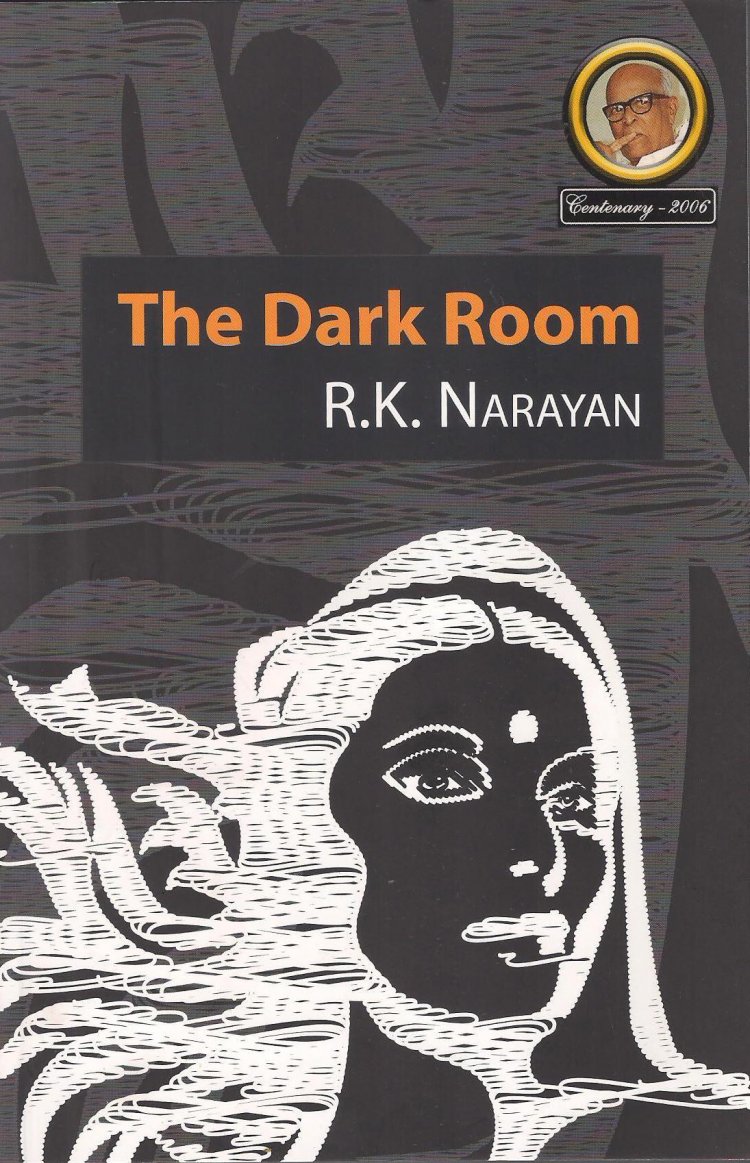The Dark Room

Rating: 4.1/5
Author: R.K. Narayan
Paperback: 162 pages
Publisher: Macmillan & Co., Ltd. ; Eyre
Publication Date: 1938 (UK), 1956 (India)
Language: English
Genre: Fiction
ISBN-10: 8185986029
ISBN-13: 978-8185986029
Plot:
The Dark Room is another marvelous novel written by R. K. Narayan where rigid traditional values are upheld and held staunchly. There is irony and humour through the poignant pains of the leading female character Savitri. Malgudi, a fabricated town, somewhere in South India, is where the story develops and molds. Here, Savitri is a submissive wife who listens to all the harsh abuses sent out to her by her husband Ramani. Ramani works for the elite Engladia Insurance Company and will do anything to satisfy his bosses.
Savitri has three children Kamala, Babu and Sumati. Savitri would flee to her dark room when she could not tolerate the pangs of intolerance and maltreatment meted out to her unfairly. She discovers sadly that her husband is having an affair with another woman. Her husband even takes her favorite bench so that he can use it to decorate the other woman's house. Her husband seems more interested in flattering and pleasing the other woman. A simpleton like Savitri has nowhere to go. She tries to drown herself but unfortunately she gets saved. She works as a temple custodian. She can fend for herself but she has her past life also. She cannot forget the bleak look on her children's faces when she abandoned them, much to their shock.
It is a touching story highlighting the bare truths of life of a woman who was totally dependent on her husband.
Review:
The Dark Room is about an extremely critical and self-indulging husband named Ramani living with his wife Savitri and their three children. He constantly criticises everything that his wife serves him on the table. He curses the cook and taunts his wife. At work, he fancies about Shanta Bai.
Narayan showcases his own bitter feelings by accentuating the husband’s ill behaviour towards everyone especially his wife and also allows room for his readers to empathise with the wife.
In his art of creative writing, his primary focus is always on how he develops his characters. He said once:
“My focus is all on character. If his personality comes alive, the rest is easy for me.”
The themes in Narayan’s book are inter related and have a mutual connection. They explore ‘Relationships’ no matter how complicated and alien it seems to the common audience. Narayan’s method to treat various ‘extracts from life’ including various family relationships, conflict between tradition and modernity, the East-West encounter, education, has been consistent in all his works.
The fictional world of R.K. Narayan digs out the domestic world ; the family forms and how it creates the basic unit for any society. While you read his plots, it can be evidently verified that he studies human psychology and the inter relationships very intimately.
About the Author:
R. K. Narayan was born in Madras, South India, and educated there and at Maharaja’s College in Mysore. His first novel Swami and Friends (1935) and its successor The Bachelor of Arts (1937) are both set in the enchanting fictional territory of Malgudi. Other ‘Malgudi’ novels are The Dark Room (1938), The English Teacher (1945), Mr. Sampath (1949), The Financial Expert (1952), The Man Eater of Malgudi (1961), The Vendor of Sweets (1967), The Painter of Signs (1977), A Tiger for Malgudi (1983), and Talkative Man (1986). His novel The Guide (1958) won him the National Prize of the Indian Literary Academy, his country’s highest literary honour. He was awarded in 1980 the A.C. Benson Medal by the Royal Society of Literature and in 1981 he was made an Honorary Member of the American Academy and Institute of Arts and Letters. As well as five collections of short stories, A Horse and Two Goats, An Astrologer’s Day and Other Stories, Lawley Road, Under the Banyan Tree and Malgudi Days, he has published a travel book, The Emerald Route, three collections of essays, A Writer’s Nightmare, Next Sunday and Reluctant Guru, three books on the Indian epics, and a volume of memoirs, My Days.















































